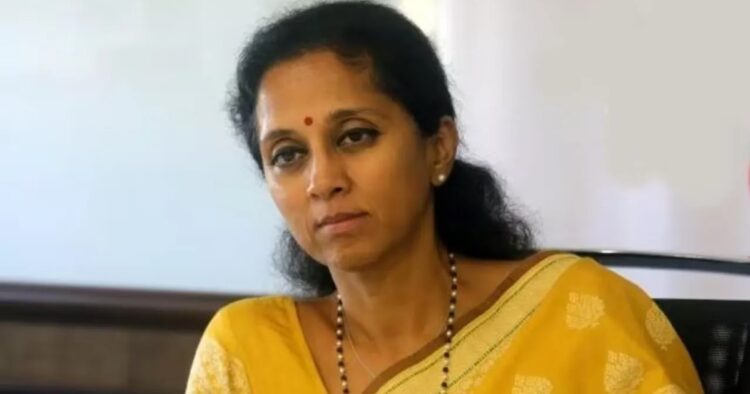In a major development, 143 Opposition Members of Parliament, including 97 from Lok Sabha and 46 from Rajya Sabha, have been suspended for their protests demanding a statement from Union Home Minister Amit Shah regarding the December 13 Parliament security breach. Nationalist Congress Party leader Supriya Sule strongly criticized the move, stating that it amounts to the “murder of democracy.”
Sule drew parallels between the current situation and the National Emergency imposed in 1975, suggesting that it feels like an undeclared Emergency has been imposed again. She condemned the suspension of over 140 MPs as an insult to the Constitution and called it a violation of democratic principles.
The suspended MP expressed disappointment over the passage of three Bills to replace colonial-era criminal laws in the absence of 97 Opposition members in the Lok Sabha on Wednesday. Sule claimed that the Opposition was ready for discussion from day one but was suspended before any dialogue could take place.
Adding to the chorus of criticism, John Brittas of the CPI(M), another suspended MP, participated in a protest march and asserted that the Centre should amend the Constitution to declare India a monarchy. He labeled the situation as a brutal killing of democracy and accused the Union Home Minister of unilaterally pushing through draft criminal laws, creating what he referred to as an “Opposition-Mukt Parliament.”
Meanwhile, Leader of Opposition in the Rajya Sabha, Mallikarjun Kharge, took to social media to voice his concern. He posted on his handle that passing important legislations by suspending Opposition MPs is not democracy but “authoritarianism.” Kharge called on the people of India to save democracy and warned against the repercussions for future generations if voices aren’t raised against what he termed as “dictatorship.”
As the political standoff continues, the suspension of a significant number of Opposition MPs has triggered widespread debate and condemnation, with critics accusing the BJP-led Centre of undermining democratic values. The situation raises questions about the state of democracy in the country and the need for constructive dialogue between the ruling party and the Opposition to address crucial issues.

















Comments